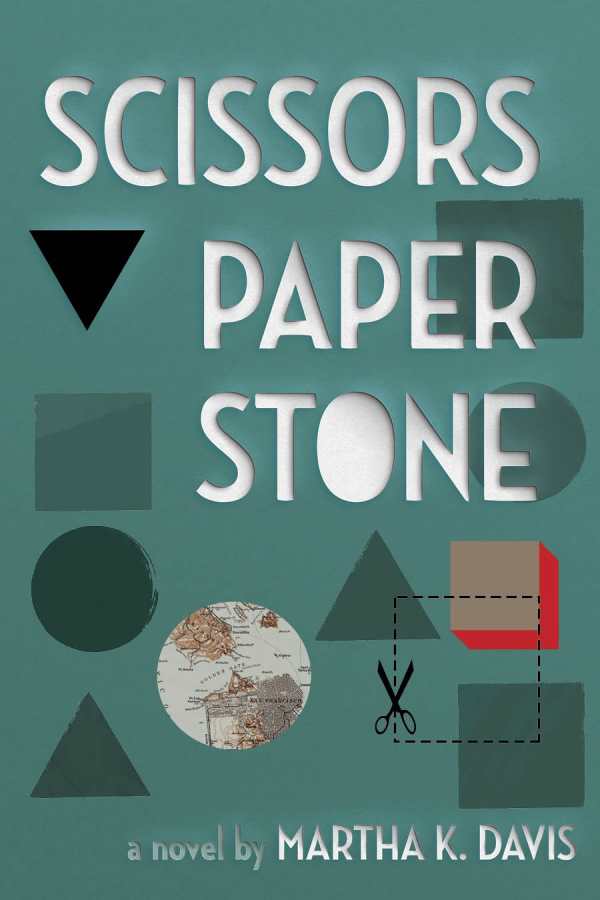Scissors, Paper, Stone
A compelling family drama resonant with feminist and queer issues, Martha K. Davis’s Scissors, Paper, Stone neatly captures the grit of intimacy as relationships expand and contract.
“We had been walking for over an hour before I realized I was actually running away, or at least investigating how it could be done.” These words hang in the air as the novel follows an evolving relationship between Catherine, Min, and Laura from 1964 to 1985.
Catherine opens the novel: “I had never wanted my own family. The older I grew, the less I could tolerate the one I came from.” So she moves to San Francisco as a newly married woman who is determined to live out her principles, no matter the distance it causes. She doesn’t expect the reality. When the response to her adopting three-month-old Min from Korea is alarmingly racist, Catherine starts cutting off those who can’t adjust, but the underlying fear, hatred, and doubt lingers.
Min grows up with an increasingly distant mother. Like most kids, she’s focused more on her own journey than she is on figuring her mother out. At her side is Laura, her best friend, who forms an instant connection with Catherine. As Min and Laura age, their paths diverge. Laura goes to college and the seemingly inevitable MRS degree; Min goes to massage school and lives as an out-and-proud butch lesbian. The women’s relationships must weather their individual storms of self-discovery if they’re going to survive.
Davis sustains a beautiful tension between the women. Despite all that distances them, they’re in each other’s lives for good or ill. Like the children’s game of the title, they come together, face off, and drift apart, though at heart they’re a set, compelled to find the parts that complete it in each other, even if their connections are attended by confrontation.
Reviewed by
Letitia Montgomery-Rodgers
Disclosure: This article is not an endorsement, but a review. The publisher of this book provided free copies of the book to have their book reviewed by a professional reviewer. No fee was paid by the publisher for this review. Foreword Reviews only recommends books that we love. Foreword Magazine, Inc. is disclosing this in accordance with the Federal Trade Commission’s 16 CFR, Part 255.

